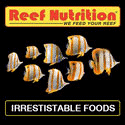 Living in Oklahoma right now is no fun, for the last 30 days we have been well over the 100F mark and there is no end in sight to the heat. While my house AC is coping, and my chiller is doing a fine job of holding my display at 80F I find myself wondering what can be done in the event of a power outage, or failure of my chiller. With this in mind I thought I would share my musings as being prepared for the worst is often the best policy in this hobby. Below are a few strategies for dealing with short periods of unexpected heat due to chiller failure, or total outage
Living in Oklahoma right now is no fun, for the last 30 days we have been well over the 100F mark and there is no end in sight to the heat. While my house AC is coping, and my chiller is doing a fine job of holding my display at 80F I find myself wondering what can be done in the event of a power outage, or failure of my chiller. With this in mind I thought I would share my musings as being prepared for the worst is often the best policy in this hobby. Below are a few strategies for dealing with short periods of unexpected heat due to chiller failure, or total outage
If faced with such an issue two things are of prime importance: removing or reducing the heat and ensuring there is adequate water flow to ensure gaseous exchange and replenish oxygen.
1.Turn off everything except main water flow- shut off the lights, reduce the internal pumps, anything that can possibly generate heat. If power is out then it is very important to agitate the tank. If you have a UPS or a battery powered airpump then use these till they fail. If you have a pump, place the airstone in a small length of PVC pipe to act as an airlift. If none of these are an option, use a clean wooden spoon and stir frequently.
2. Own a generator- pretty much a no-brainer right there. After the lights and filtration a generator is the first piece of equipment that I recommend everyone have. It doesn’t need to be super expensive, but does need to match the power requirements of keeping the tank cool and water flowing at a very minimum. If you have a generator, check that it works. For some reason this one gets me every time. Power goes out and the generator needs to be tinkered with before I can use it. Routine running is a great idea to prevent this.
3. Stock up on frozen RoDi cubes in a freezer. A friend of mine recently had to bag up every ice cube in his house, and some from the local grocery store to keep his tank cool following an AC outage. Ordinarily he doesn’t need a chiller on his system. His concern with this method was that the ice would carry some impurities he wouldn’t want in his tank-after all it is just frozen tapwater. Floating the ice in Ziplock bags worked well, but it would be easier to dump the ice in and let it just mix and not worry about bags bursting. Using RoDi would certainly alleviate this issue. If you do take this approach, bring the water temp down slowly to avoid overdoing it. If ice cubes are not your thing- soda bottles or milk jugs of frozen water work well and can be returned to a freezer to repeat the cycle. The downside is that the large bulk could damage corals both by bumping and by localized overcooling of an area.
4. If the power to the house is OK but the chiller fails, then use evaporation. Box fans work great for blowing large volumes of air over a tank. Remove the lights, as these are not needed to keep the tank cool, and mount fans to blow across the water. Also, blowing air across the sump can really help. Be careful with the fans that they can not fall into the water, and set them on full blast. Evaporation will increase substantially and really needs to be vented from the house as well if the AC is not working.
Hopefully, you don’t need any of these approaches and the summer will be uneventful- but being prepared can save the lives of your animals. These are a few of the ideas I had thought of… Anyone care to share their hints and tips on keeping the tank cool during an outage?










0 Comments